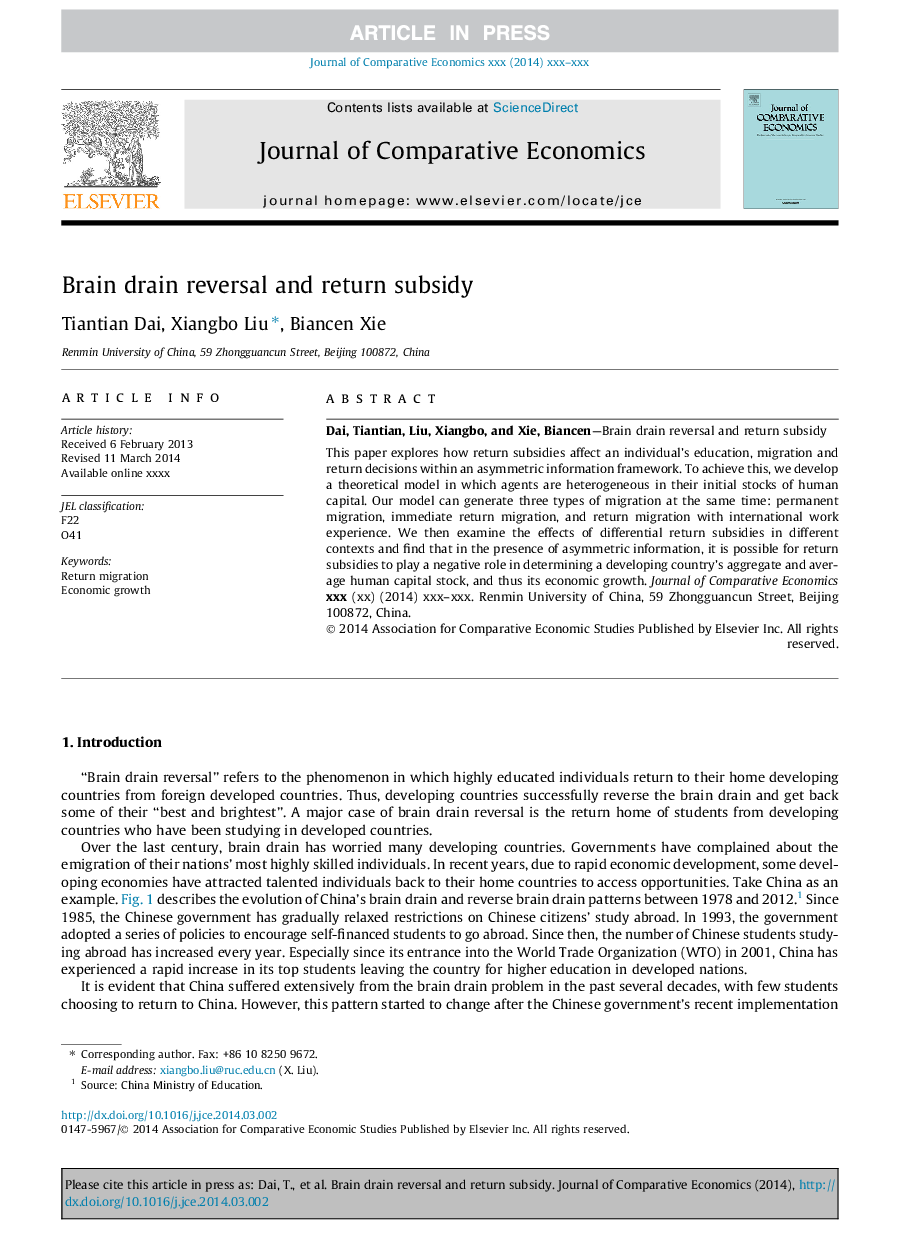| Article ID | Journal | Published Year | Pages | File Type |
|---|---|---|---|---|
| 5092174 | Journal of Comparative Economics | 2015 | 13 Pages |
Abstract
This paper explores how return subsidies affect an individual's education, migration and return decisions within an asymmetric information framework. To achieve this, we develop a theoretical model in which agents are heterogeneous in their initial stocks of human capital. Our model can generate three types of migration at the same time: permanent migration, immediate return migration, and return migration with international work experience. We then examine the effects of differential return subsidies in different contexts and find that in the presence of asymmetric information, it is possible for return subsidies to play a negative role in determining a developing country's aggregate and average human capital stock, and thus its economic growth.
Related Topics
Social Sciences and Humanities
Economics, Econometrics and Finance
Economics and Econometrics
Authors
Tiantian Dai, Xiangbo Liu, Biancen Xie,
